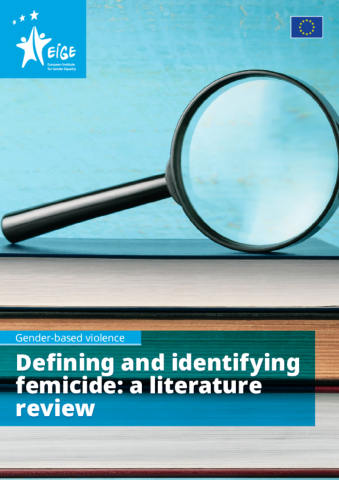This literature review contributes to a comparative analysis of definitions of, types of, indicators of and data collection systems on femicide in the EU Member States and the United Kingdom, and at international level.
It is based on a comprehensive and in-depth search for studies published in respected peer-reviewed journals and in books. The aim is to give an overview of the existing multidisciplinary literature on variables and factors used to identify femicide and gender-related motives of female homicides.
It provides a structured outline of the state of play on defining and creating typologies of femicide. The literature review relies on a broad definition of femicide as ‘structural violence’, while acknowledging that femicide is an individual act with a specific motivation.
It also reviews methodologies of gathering data on femicide, together with current challenges, and identifies adequate variables to identify femicide and gender-related motives of homicide.
